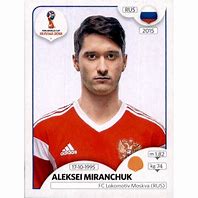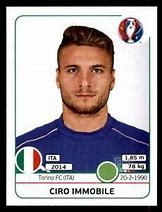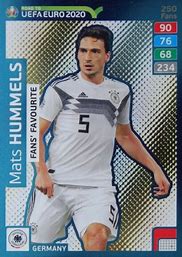UEFA 2020 Euro Championship – Day 10
 Group F: Hungary (1) 1 – 1 (0) France
Group F: Hungary (1) 1 – 1 (0) France
Goal-scorers: Hungary – Fiola (45’+2’). France – Griezmann (66′)
Puskas Arena, Budapest
This has been to date a tournament very low on shock results, but there was a sniff of one in Budapest when Hungary, who got hit with three late goals against Portugal, had World Champions France trailing at the break. The goal came in time added-on at the end of the half and was a quality one which was wildly celebrated by the full-house at the Puskas Arena. Fiola headed the ball into the path of Sallai, who returned it in a one-two which allowed Fiola to beat Pavard and Varane before finishing past Lloris. As for most of the Portugal game, Hungary were resolute, but their resistance was broken on sixty-six minutes. It was a goal that was more direct that those with the usual flair associated with Les Bleus, as Mbappe ran onto Lloris’ long kick down field playing in Griezmann who scored from just outside the six-yard box. Did France deserve to win this one? They had more possession and more shots, but that would have cruel on Hungary who for their battling qualities deserved a point.
 Group F: Portugal (0) 2 – 4 (0) Germany
Group F: Portugal (0) 2 – 4 (0) Germany
Goal-scorer: Portugal – Ronaldo (15′), Jota (67′). Germany – Rúben Dias (35’og), Guerreiro (39′ og), Havertz (51′), Gosens (60′)
Allianz Arena, Munich
What was I thinking? How could I doubt that Germany would lose this game and be on the edge of elimination from the competition? Well the first fifteen minutes made very interesting watching. Germany were out of the blocks and on fire and had a goal disallowed after a VAR review for offside. They then got caught on the break with Ronaldo tapping home from close range and from nowhere they were behind, and you began to wonder if this was not going to be Germany’s day. From there on in though it was all about Die Mannschaft as Portugal retreated and Germany poured forward. Then in the space of four minutes the game was turned on its head and in the process a record was created. On thirty-five minutes Portugal’s Rúben Dias shinned Gosens’ cross into his own net and four minutes later Guerreiro did the same as Kimmich cut the ball back into the Portugal six-yard box. The record created by this bizarre passage of play was that it was the first time at the European Championship Finals that two own-goals had been scored in a game. In fact, Euro2020 had produced more OG’s than previous tournaments. Into the second-half and it was more of the same from Germany, with Havertz making it 3-1 six minutes after the restart with a simple finish from Gosens cross. The provider turned goal-scorer on the hour mar, as he headed home Kimmich’s cross to make it 4-1 and you wondered if another 7-1 demolition (as over Brazil in the World Cup) was on the cards. It wasn’t to be as Portugal got what turned out to be a consolation from Jota on sixty-sevens minutes, giving the score a closeness that didn’t reflect Germany’s dominance. Write-off the Germans at your peril.
 Group E: Spain (1) 1 – 1 (0) Poland
Group E: Spain (1) 1 – 1 (0) Poland
Goal-scorers: Spain – Morata (25′) Poland – Lewandowski (54′)
La Cartuja, Seville
After another game where Spain dominated possession but only came away with a draw, many in the media seem to have hit the panic button as far as Luis Enrique’s side is concerned. We should though cast our minds back to 2016 in which Portugal only made it through to the knockout phase after three draws, before going on to lift the trophy. Yet the Spanish are not creating a great deal from all their ball retention, but you have to be ‘in it to win’ it and Spain will fancy their chances of progression as they face Slovakia in their final game. It all looked good on twenty-five minutes when Alvaro Morata scored from close range but only after a VAR review to send the Spaniards in at the break with a goal advantage. Poland though kept plugging away and with a talent such as Lewandowski in their side, he is always a threat. And so it proved nine minutes into the second-half as he rose to head home and level it at 1-1. That joy though looked to be short-lived as just four minutes later Spain were awarded a penalty. The Villarreal striker Moreno stepped up but put his spot-kick against the post with Morata unable to convert the rebound. As with the France v Hungary encounter did the ‘big’ side warrant a win based on their dominance of the game? Some will argue yes, but the simple fact is it’s a game all about goals and the history books will show it finished 1-1.
Today we reach the stage where teams find out if they need to pack their bags and head for the exits or prepare for the knockout phase as the last round of group games begin. Sensibly these days they kick-off at the same time so that no side has any advantage, or in the case of West Germany and Austria at the 1982 World Cup in Spain, allows any room for collusion. For older readers check out the Disgrace of Gijón – Wikipedia
Group A sees Wales travel to Rome and face Italy whilst the Swiss play Turkey in Baku. These final games are all about ‘ifs and buts’ For instance how do Italy approach the game having already qualified? Do they rest players or simply continue to build momentum with the same side? Do Wales look to play for a point?
The permutations are as follows, so you’ll need to read carefully!
- if Wales draw with Italy they will finish second and play in their last 16 match in Amsterdam against Group B’s runners-up.
- If they lose, Wales could still finish second. However, if they lose and Switzerland beat Turkey with a big enough change in goal difference the Welsh could finish third. However, four points would still almost certainly be enough to see them through to the last 16 as one of the tournament’s four best third-placed teams.
- If Wales win they would win the group and play their next game at Wembley against Group C’s runners-up.
- Both Switzerland and Turkey need to win their final Group A game to have any chance of reaching the last 16.
- If Switzerland win Swiss they would need Wales to lose to Italy, with a swing of five on goal difference, to have any chance of finishing second. Four points might be enough with four third-placed teams going through.
- If Turkey win they would have to hope that their three points were better than two the other third-placed teams. However, with their current goal difference of -5, it is likely they would need a big win over the Swiss for them to progress.
 Group B: Finland (0) 0 – 1 (1) Russia
Group B: Finland (0) 0 – 1 (1) Russia Group A: Turkey (0) 0 – 2 (0) Wales
Group A: Turkey (0) 0 – 2 (0) Wales Group A: Italy (0) 0 – 3 (0) Switzerland
Group A: Italy (0) 0 – 3 (0) Switzerland Group E: Hungary (0) 0 – 3 (0) Portugal
Group E: Hungary (0) 0 – 3 (0) Portugal Group E: France (0) 1 – 0 (0) Germany
Group E: France (0) 1 – 0 (0) Germany Group A: Turkey (0) 0 – 3 (0) Italy
Group A: Turkey (0) 0 – 3 (0) Italy Italy and Turkey get the delayed Euro 2020 tournament underway at the Stadio Olimpico in Rome tonight. The Italians topped their Group in qualifying with a 100% record having beaten Finland, Greece, Bosnia and Herzegovina, Armenia and Liechtenstein both home and away. The Azzuri scored 37 goals and conceded just 4 as they romped home twelve points clear of second-placed Finland. Turkey came through as runners-up in their qualifying campaign, finishing just two points behind France, in a Group that also contained Iceland, Albania, Andorra and Moldova. The Crescent Stars beat France in the Group stages but lost out on top-stop after only picking up a point in their two meetings with Iceland.
Italy and Turkey get the delayed Euro 2020 tournament underway at the Stadio Olimpico in Rome tonight. The Italians topped their Group in qualifying with a 100% record having beaten Finland, Greece, Bosnia and Herzegovina, Armenia and Liechtenstein both home and away. The Azzuri scored 37 goals and conceded just 4 as they romped home twelve points clear of second-placed Finland. Turkey came through as runners-up in their qualifying campaign, finishing just two points behind France, in a Group that also contained Iceland, Albania, Andorra and Moldova. The Crescent Stars beat France in the Group stages but lost out on top-stop after only picking up a point in their two meetings with Iceland.
 Whilst England fans bemoaned the fact that the Three Lions exited the 1982 World Cup in Spain without losing a game and wondered at what might have been if Trevor Brooking and Kevin Keegan had been fully fit, Stuart Horsfield, then a ten year old boy living in Scarborough was transfixed not by the efforts of his country of birth, but by the football of another nation – Brazil, nicknamed the Seleção (The National Team).
Whilst England fans bemoaned the fact that the Three Lions exited the 1982 World Cup in Spain without losing a game and wondered at what might have been if Trevor Brooking and Kevin Keegan had been fully fit, Stuart Horsfield, then a ten year old boy living in Scarborough was transfixed not by the efforts of his country of birth, but by the football of another nation – Brazil, nicknamed the Seleção (The National Team).